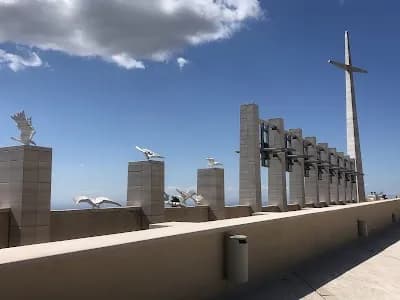
St. Padre Pio
The Mystic Saint of Pietrelcina
"Pray, hope, and don't worry."
Saint Facts
- Origin:
- Italy
- Gender:
- Male
- Vocation:
- Priest
- Birth:
- 1887
- Feast Day:
- Sep 23
- Death:
- 1968
Saint Details
St. Padre Pio, born Francesco Forgione on May 25, 1887, in Pietrelcina, Italy, was a renowned Capuchin friar and priest. At the age of 15, he entered the Capuchin Order, taking the name Pio in honor of St. Pius V. He was ordained a priest in 1910 and spent much of his life at the friary of San Giovanni Rotondo in southern Italy.
Padre Pio's life was marked by profound spirituality and mystical experiences. On September 20, 1918, he received the stigmata, the visible wounds of Christ, which remained on his body for the rest of his life. He was known for his dedication to prayer and the sacrament of confession, guiding countless pilgrims who sought his counsel. One of his most enduring contributions was the establishment of the *Casa Sollievo della Sofferenza* in 1956, a hospital that remains a testament to his compassion for the sick.
Padre Pio was canonized on June 16, 2002, by Pope John Paul II, affirming his sanctity and enduring spiritual legacy. His feast day is celebrated on September 23, the day of his death in 1968. Today, he is revered as one of the most influential saints of the 20th century, offering a model of holiness that resonates deeply with contemporary believers. His tomb in San Giovanni Rotondo has become a major pilgrimage site, attracting millions seeking his intercession.
Associated Holy Sites

Santuario di San Pio da Pietrelcina
Sagrato S. Giovanni Paolo II, 71013 San Giovanni Rotondo FG, Italy

Sanctuary of Saint Mary our Lady of Grace
Piazzale Santa Maria delle Grazie, 71013 San Giovanni Rotondo FG, Italy
Details for: Santuario di San Pio da Pietrelcina
The Santuario di San Pio da Pietrelcina, located in San Giovanni Rotondo, Italy, is a major Catholic pilgrimage site dedicated to Saint Pio of Pietrelcina, also known as Padre Pio. This sanctuary holds immense religious significance as it is built near the monastery where Padre Pio lived for much of his life and received the stigmata, the wounds of Christ. The site includes the Church of Saint Pio, designed by renowned architect Renzo Piano, which can accommodate thousands of pilgrims. The sanctuary also houses the tomb of Padre Pio, attracting millions of visitors annually who come to pray, seek healing, and reflect on his life of devotion and miracles. Pilgrims often visit the adjacent Capuchin friary, where Padre Pio spent his days in prayer and service. The sanctuary serves as a spiritual hub, offering Mass, confession, and opportunities for quiet contemplation, making it a deeply meaningful destination for Catholics worldwide.
🙏 No spam. Just grace. Unsubscribe anytime.